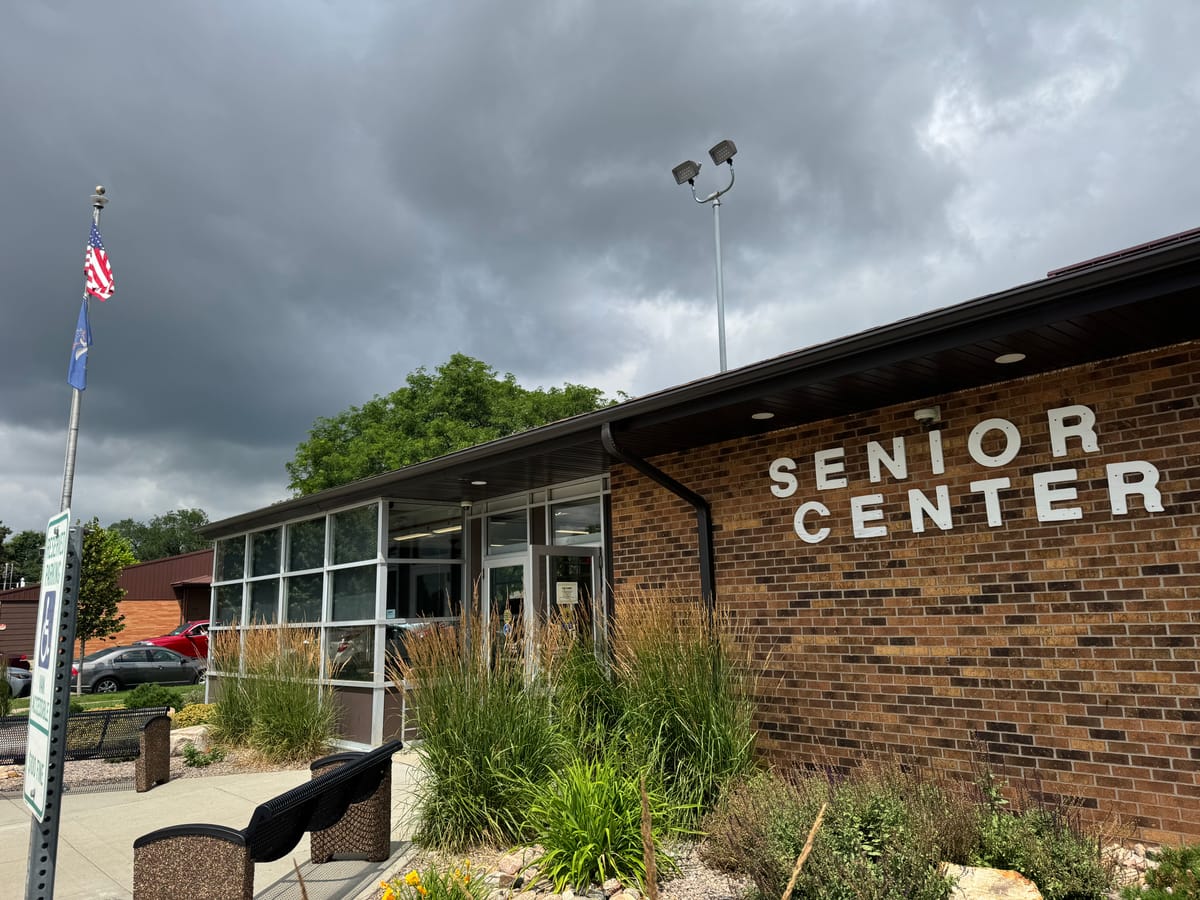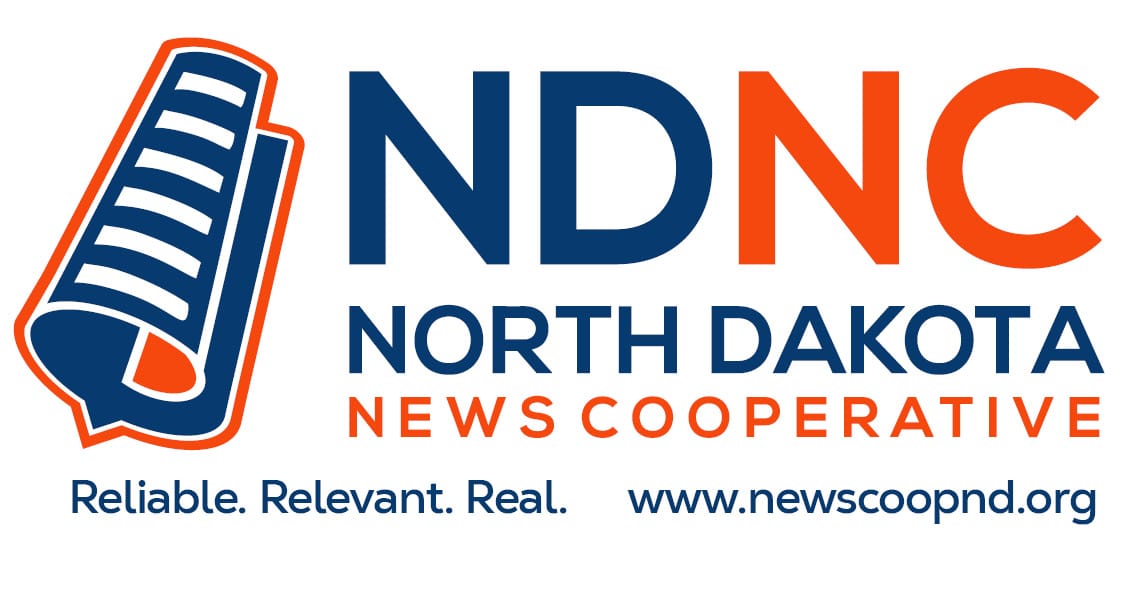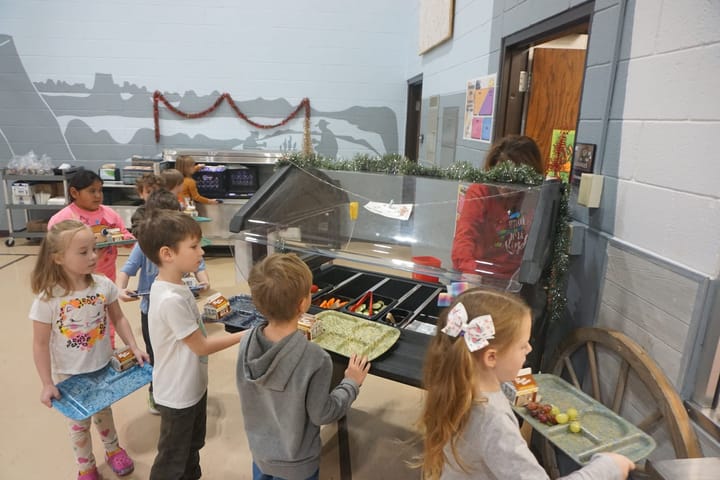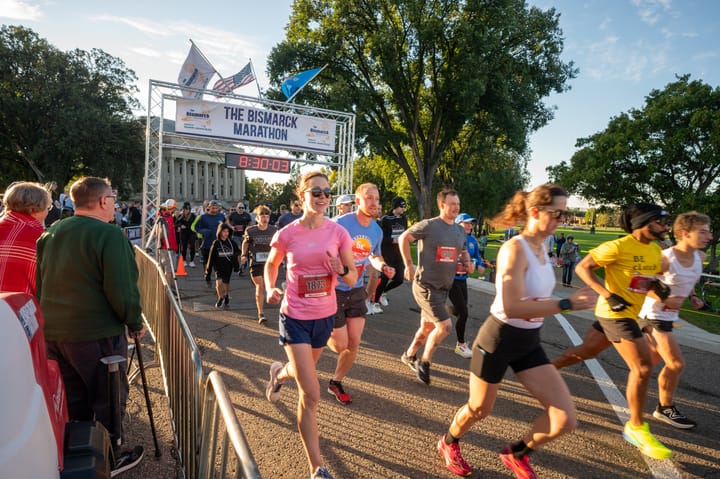Federal cost cutting imperils some North Dakota senior programs
After 44 years serving seniors in the state, programs could end without funding

Federal grants for senior companion programs in North Dakota are at risk of being terminated, potentially severing bonds formed between often isolated seniors and the retired volunteers serving them across the state.
For volunteers like 77-year-old Sharon Malcomb of Minot, besides cutting ties between herself and those she visits, termination of the program would also mean the loss of a $4 per-hour stipend she relies on to supplement her social security income.
“Personally, it would probably mean I would have to choose between buying groceries and buying meds,” Malcomb said of the potential loss of around $400 in income per month she currently uses to cover gas and grocery costs.
“If I don’t get that, I’ll probably have to cut corners somewhere,” she said. “Being a volunteer helps me and it helps the people I go visit.”
As part of her volunteering, Malcomb’s weekly visits include a woman in a memory care unit who can’t remember her name, another in an electric wheelchair who needs extra assistance, and a man suffering from dementia when his spouse needs to run errands.
“The people I serve, they look forward to my company,” she said. “And like the lady whose husband has dementia, I don’t know if she could go out without someone watching her husband. She can’t leave him alone.”
Malcomb has served as a volunteer in the senior companions program for the past 11 years, or nearly a quarter of the program’s 44-year lifespan in North Dakota. Her sister is also a senior companion, and her mother served as one until she was 85.
Lutheran Social Services of Minnesota, which facilitates two grants for the senior companions programs in North Dakota, said funding is still pending approval from the federal Office of Management and Budget.
The main grant covering 32 counties in the state for the period from July 1, 2025 to June 30, 2028, while technically approved, has not been funded.
LSS Minnesota was able to get an extension for a few more months, but the uncertainty means the program will only last through the end of September unless full funding is released.
Ripple effects
Staff cuts and reorganization of AmeriCorps, which oversees the programs at the federal level, created a ripple effect of funding uncertainty for at least 132 senior programs it facilitates across the country, according to Donna Whitcomb, president of the National AmeriCorps Seniors Association.
“This is probably the closest I’ve ever seen it come to actually being dissolved or ended,” Whitcomb said of the senior programs run by AmeriCorps.
A separate grant to LSS Minnesota for senior companion services in 21 North Dakota counties and nine in Minnesota is funded through June 30, 2026. There is currently no certainty for funding after that date, however.
Carolyn Scherer, program director for the senior companions program in North Dakota and Northwest Minnesota, said the uncertainty hasn’t impacted staffing yet, but has not allowed the onboarding of new volunteers in the 32 counties - including Ward County where Malcomb resides - covered by the main grant.
“They provide companionship, friendship, they take clients out into the community, to get groceries, or a prescription or to an appointment or community activity,” Scherer said. “They might just go out for coffee or stay at the client's home and play a card game, or kind of reminisce over old photos.”

Patricia Hansen, director of South Central Adult Services out of Valley City, which finds volunteers for the program in her area, echoed those sentiments.
“They’re basically a companion for people who may not have family, who are really lonely, and it gives them someone to talk to, maybe have coffee with, and things like that. Really, none of our other programs are set up like that,” Hansen said.
Cuts to other federal programs related to food insecurity are also a concern, Hansen said, since she’s seen an increase in need as grocery costs rise.
“A lot of seniors are getting food from us now, which never used to happen, because they can’t afford groceries,” Hansen said. “That’s going to get worse, I’m afraid.”
Currently, 75 senior companion volunteers serve 375 older adults in North Dakota through the senior companions program, with those volunteers providing over 64,000 hours of service time in 2024 alone.
“Some of our volunteers really rely on that stipend for their living expenses,” Scherer said. “They also receive mileage reimbursement, and that makes volunteering possible as well as providing services to clients. They might not be able to do that otherwise.”
Volunteers for the program have to meet an income needs eligibility requirement to qualify, Whitcomb said.
“This is not like their fun money,” she said. “This is money for those folks that will impact their quality of life. And just the fact that volunteering is really good for you. It keeps you socially active. It keeps you engaged in your communities. It gives you that reason to get out of bed in the morning.”
One of the biggest issues for these programs right now is not knowing if services will be able to continue, but facilitators hope a resolution will come soon.
“This is a fluid situation, but we remain hopeful that full funding will be released before the end of September to sustain ongoing services,” said Janine Fugate, associate vice president of communications for Lutheran Social Service of Minnesota.
A separate program funded through AmeriCorps, the Foster Grandparent Program, is also in a similar situation with uncertainty about continued funding.
A representative with the Tri-Valley Opportunity Council in Crookston, Minnesota did not respond to NDNC calls and e-mails requesting comment.
Increased health, independence risks
According to a 2023 report from the U.S. Surgeon General’s office on the epidemic of loneliness and social isolation in the U.S., a lack of social connections poses significant risks to individual health and longevity.
This includes increasing the risk of premature death by nearly 30%, increasing the risk of heart disease by 29%, stroke by 32%, as well as elevating rates of depression, anxiety, dementia and susceptibility to viruses and respiratory illnesses.
Whitcomb said she was also concerned that if the programs are ended, it would force people who are currently living independently to go into assisted living arrangements if they don’t have that extra help.
“It’s not just affecting the volunteers, but it’s going to make a difference as to whether some of our community members can actually continue to stay in their homes,” Whitcomb said.
She said the small amount of federal money spent on these senior programs ends up saving a larger amount of spending on other care, particularly for those in rural areas.
“When you have all small communities and you are many, many miles away from access to care and other things, the volunteer piece is absolutely huge in helping to keep those people in their homes,” she said.

The North Dakota News Cooperative is a nonprofit news organization providing reliable and independent reporting on issues and events that impact the lives of North Dakotans. The organization increases the public’s access to quality journalism and advances news literacy across the state. For more information about NDNC or to make a charitable contribution, please visit newscoopnd.org. Send comments, suggestions or tips to michael@newscoopnd.org. Follow us on Twitter: https://twitter.com/NDNewsCoop.



